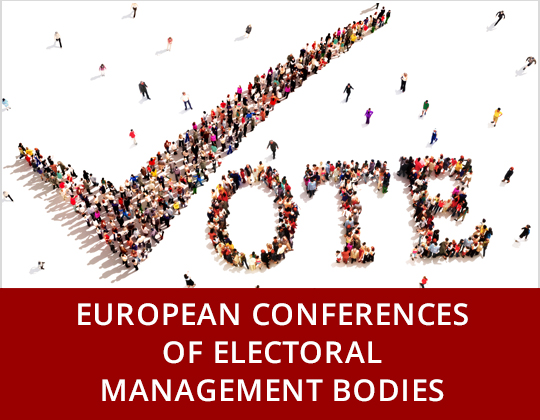About us
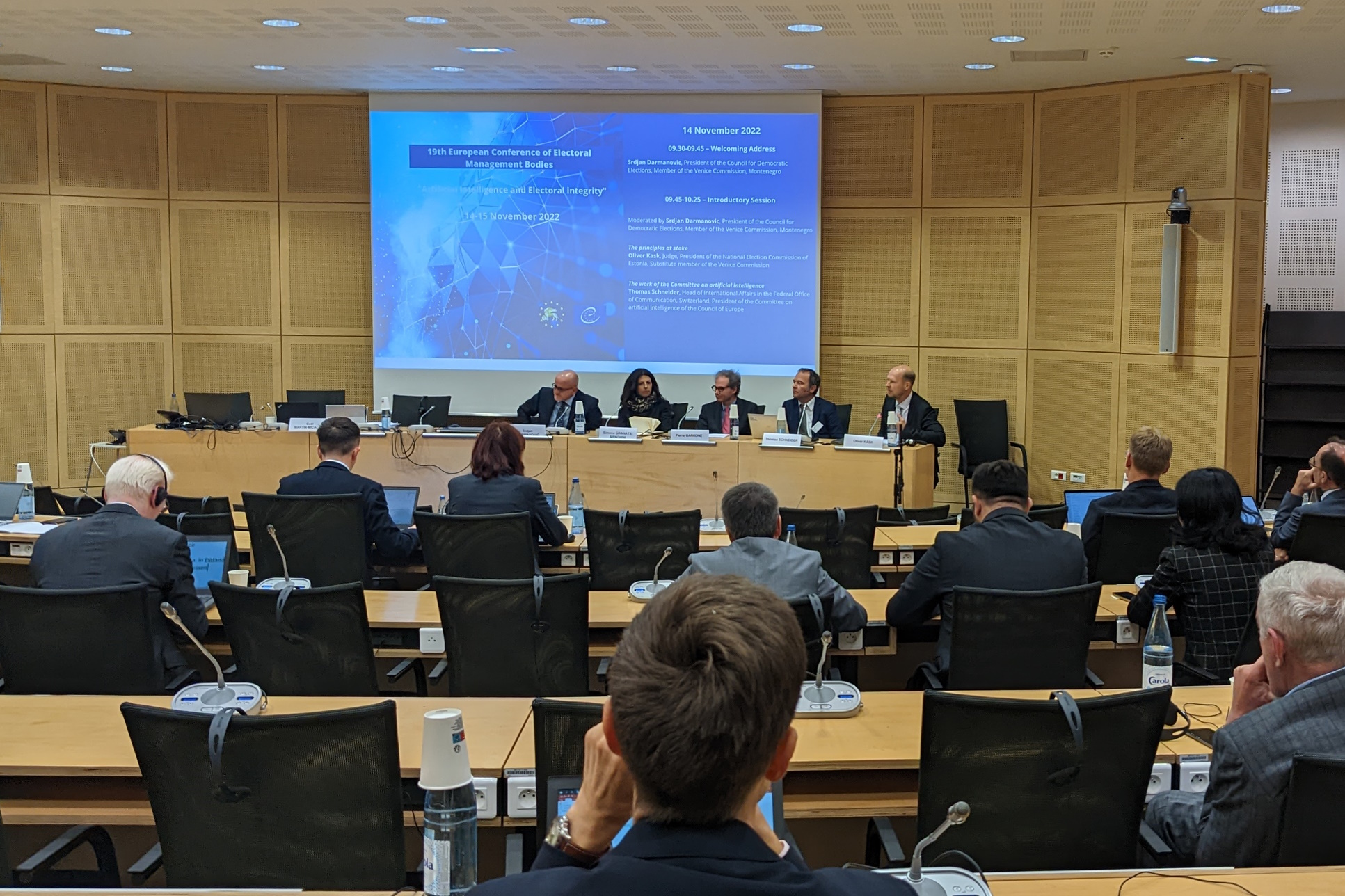
19th EMB Conference photo, Strasbourg/hybrid, 14-15 November 2022
 Background - The Venice Commission assisting Electoral Management Bodies towards genuine electoral processes
Background - The Venice Commission assisting Electoral Management Bodies towards genuine electoral processes
Paving the way for the organisation of genuine electoral processes
The electoral field is one of the key areas of expertise of the European Commission for Democracy through Law of the Council of Europe (“the Venice Commission”). In addition to preparing opinions and studies on electoral legislation, and organising conferences and training seminars, the Venice Commission works closely together with the Electoral Management Bodies (EMBs) of its 61 member States.
Electoral Management Bodies oversee and conduct elections and referendums, and therefore play a crucial role in the good functioning of democratic institutions. Their mandates include a variety of tasks, such as administering elections, managing complaints, promoting gender equality and the participation of minorities and advocating electoral reform.
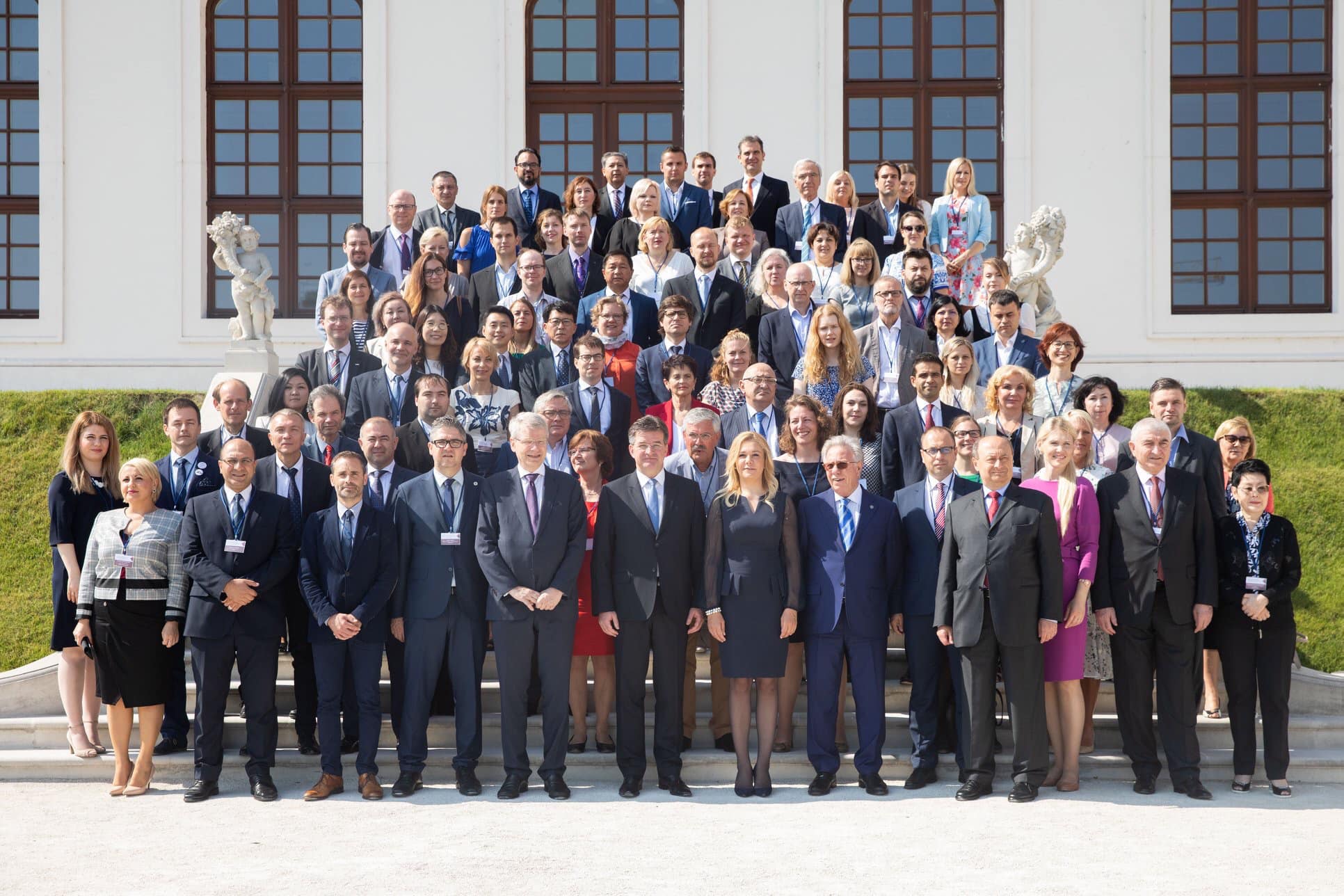
16th EMB Conference group photo, Bratislava, 27-28 June 2019
 What are the European Conferences of Electoral Management Bodies?
What are the European Conferences of Electoral Management Bodies?
European Electoral Management Bodies met for the first time in Palma de Mallorca, Spain, in 2002 and agreed to continue to meet on a regular basis. The Venice Commission co-organised and took part in the second conference, held in Strasbourg in 2005. Since then, European Conferences of Electoral Management Bodies ("the EMB Conferences") have been co-organised annually by the Venice Commission and local EMBs in different European countries. The last EMB Conference was held in Strasbourg as a hybrid event in 2022.
Each Conference gathers together electoral administrators and experts from the Venice Commission’s 62 member States and beyond. The EMB Conferences' primary aim is to pool and share knowledge and expertise on international standards, domestic legislation and good practice in the electoral field in general. The EMB Conferences are a unique forum which provides an opportunity to examine the challenges faced when managing electoral processes, to debate on how to improve such processes and to strengthen the network between EMBs.
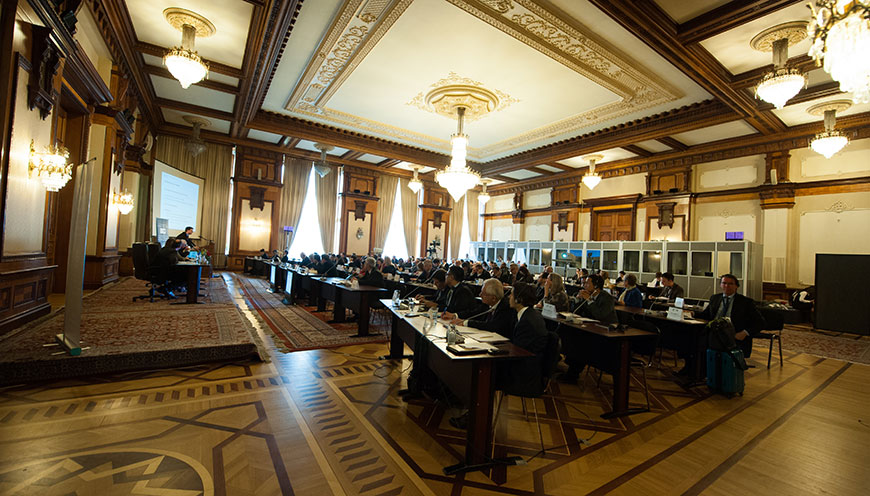
13th EMB Conference, Bucharest, 14-15 April 2016
 Working methods
Working methods
The EMB Conferences usually last for two days, and are organised annually in one of the Venice Commission’s member States in co-operation with the local EMB. It is based on a participatory and interactive method that includes plenary sessions with several panellists focussing on a specific subject and working sessions held simultaneously in which participants can choose a topic of their interest, exchange views and share knowledge on a more informal basis.
The different sessions of the EMB Conferences are generally held in English, French and the language of the host country. Simultaneous interpretation in these languages is provided for all participants. Invited participants take part in the EMB Conferences free of charge.
A pool of experienced keynote speakers with diverse backgrounds contributes to each EMB Conference. They include chairpersons or members of EMBs, international election experts, elected officials, members of governments, representatives of international institutions and renowned scholars.
A synopsis summarising the discussions held in both the plenary and working sessions is published and available to the public on the Venice Commission’s website at the end of each EMB Conference. These conclusions highlight potential issues and improvements of electoral processes. They are targeted to both electoral management bodies and public authorities, including law makers.
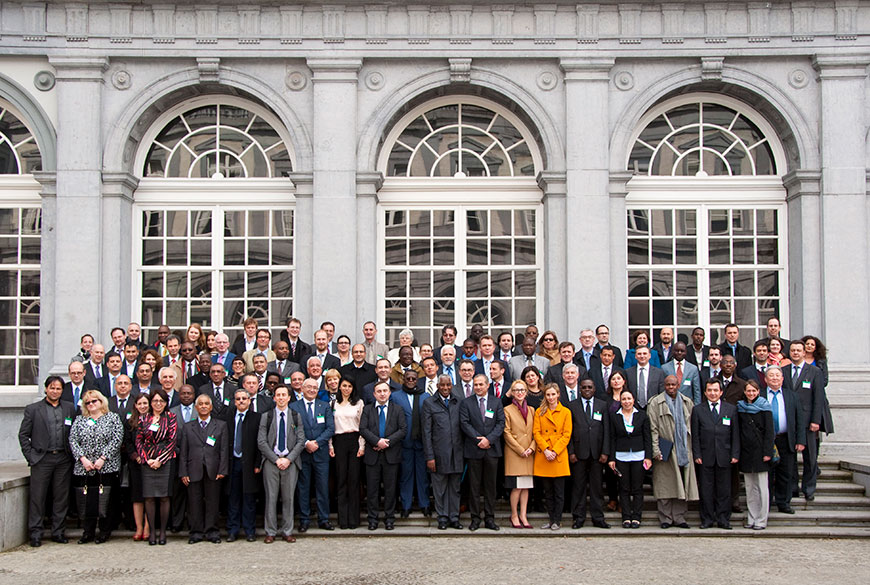
12th EMB Conference group photo, Brussels, 30-31 March 2015
 Participants
Participants
The main beneficiaries of EMB Conferences are the members and staff of Electoral Management Bodies of the Venice Commission's member States. The Conferences are, nevertheless, intended to reach a broader audience, including researchers, international and regional organisations (both governmental and non-governmental) and other relevant stakeholders in the electoral field. Major international organisations such as the European Union, the Office for Democratic Institutions and Human Rights of the Organization for Security and Co-operation in Europe (OSCE/ODIHR), the International Institute for Democracy and Electoral Assistance (International IDEA) and the International Foundation for Electoral Systems (IFES) have participated in EMB Conferences on a regular basis since 2005.
 Topics
Topics
The EMB Conferences have touched upon a wide variety of topics over the years, starting with very general issues in the earlier editions, to the future of electoral administration and electoral management in more recent ones.
 List of the 19 editions of the EMB Conferences
List of the 19 editions of the EMB Conferences
- 19th edition (2022, Hybrid, Strasbourg, France): Artificial Intelligence and Electoral Integrity
- 18th edition (2021, Online, Strasbourg, France): Lessons learned from the impact of the COVID-19 health crisis on electoral processes
- 17th edition (2020, Online, Strasbourg, France): Electoral law and electoral administration in Europe: Recurrent challenges and best practices
- 16th edition (2019, Bratislava, Slovak Republic): Election Dispute Resolution
- 15th edition (2018, Oslo, Norway): Security in Elections
- 14th edition (2017, Saint Petersburg): Operational Electoral Management Bodies for Democratic Elections
- 13th edition (2016, Bucharest): New Technologies in Elections: Public Trust and Challenges for Electoral Management Bodies
- 12th edition (2015, Brussels): Ensuring Neutrality, Impartiality and Transparency in Elections: The Role of Electoral Management Bodies
- 11th edition (2014, Helsinki): Combating the Misuse of Administrative Resources during Electoral Processes
- 10th edition (2013, Chișinău): The Code of Good Practice in Electoral Matters: Strengths and Potential Developments
- 9th edition (2012, Tallinn): Innovative Solutions for Elections
- 8th edition (2011, Vienna): Elections in a Changing World
- 7th edition (2010, London): Every Voter Counts
- 6th edition (2009, The Hague): Enhancing Participation in Elections
- 5th edition (2008, Brussels): Distance Voting
- 4th edition (2007, Strasbourg): Fighting against Electoral Fraud – Complaints and Appeals Procedures
- 3rd edition (2006, Moscow): Development and Codification of International Standards in the Field of Elections
- 2nd edition (2005, Strasbourg): Voters’ Turnout – Impact of New Technologies on Participation
- 1st edition (2002, Palma de Mallorca): Electoral Management and Electoral Co-operation in Member States and with International Organisations
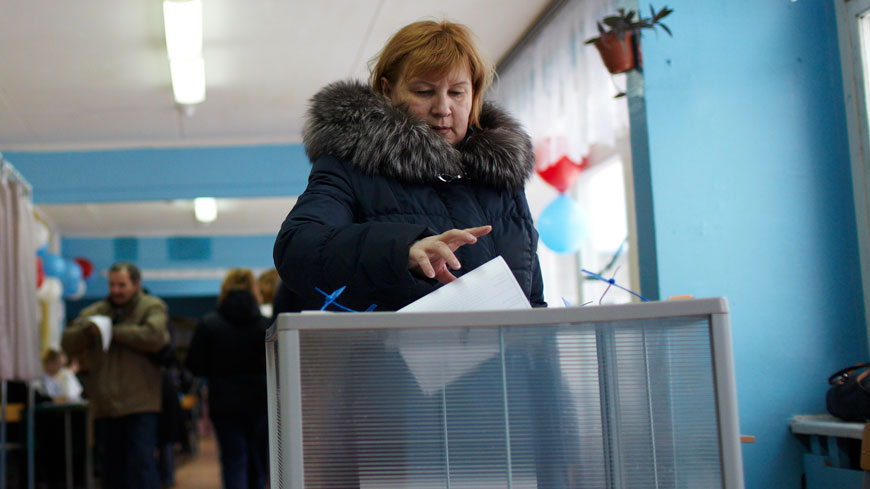
 The Venice Commission
The Venice Commission
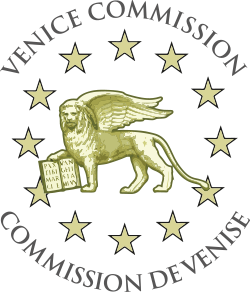
 Members – 61
Members – 61
- Albania (1996)
- Algeria (2007)
- Andorra (2000)
- Armenia (2001)
- Austria (1990)
- Azerbaijan (2001)
- Belgium (1990)
- Bosnia and Herzegovina (2002)
- Brazil (2009)
- Bulgaria (1992)
- Canada (2019)
- Chile (2005)
- Costa Rica (2016)
- Croatia (1997)
- Cyprus (1990)
- Czechia (1994)
- Denmark (1990)
- Estonia (1995)
- Finland (1990)
- France (1990)
- Georgia (1999)
- Germany (1990)
- Greece (1990)
- Hungary (1990)
- Iceland (1993)
- Ireland (1990)
- Israel (2008)
- Italy (1990)
- Kazakhstan (2011)
- Republic of Korea (2006)
- Kosovo (2014)
- Latvia (1995)
- Liechtenstein (1991)
- Lithuania (1994)
- Kyrgyzstan (2004)
- Luxembourg (1990)
- Malta (1990)
- Mexico (2010)
- Moldova (1996)
- Monaco (2004)
- Montenegro (2006)
- Portugal (1990)
- Morocco (2007)
- Netherlands (1992)
- North Macedonia (1996)
- Norway (1990)
- Peru (2009)
- Poland (1992)
- Romania (1994)
- San Marino (1990)
- Serbia (2003)
- Slovakia (1993)
- Slovenia (1994)
- Spain (1990)
- Sweden (1990)
- Switzerland (1990)
- Tunisia (2010)
- Türkiye (1990)
- Ukraine (1997)
- United Kingdom (1999)
- United States (2013)
 Associate Member
Associate Member
- Belarus (Suspended)
 Observers
Observers
- Argentina (1995)
- Holy See (1992)
- Japan (1993)
- Uruguay (1995)
 Participants
Participants
- European Union
- OSCE / ODIHR
 Special co-operation status
Special co-operation status
- Palestinian National Authority (2008)
- South Africa (1993)




